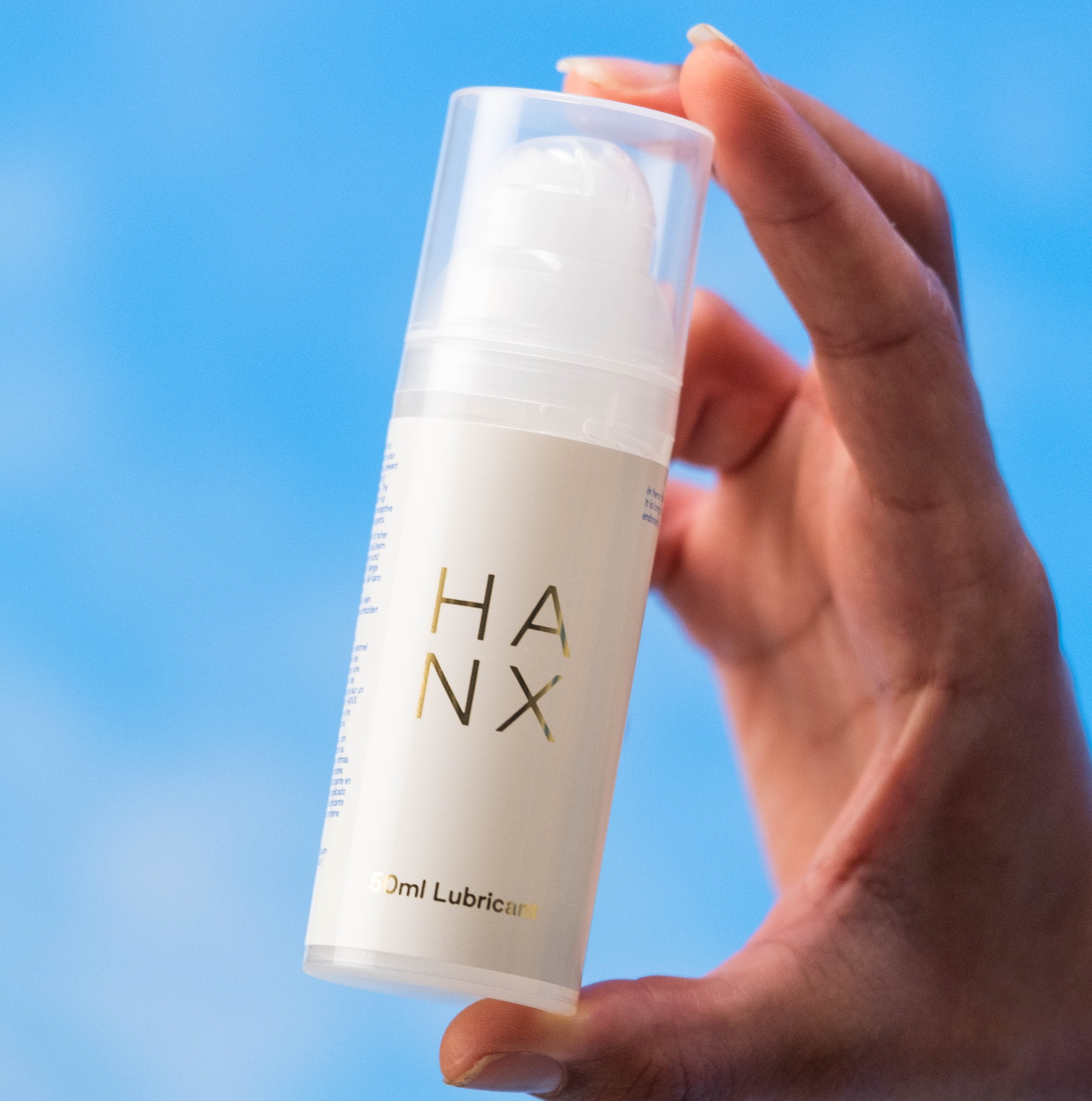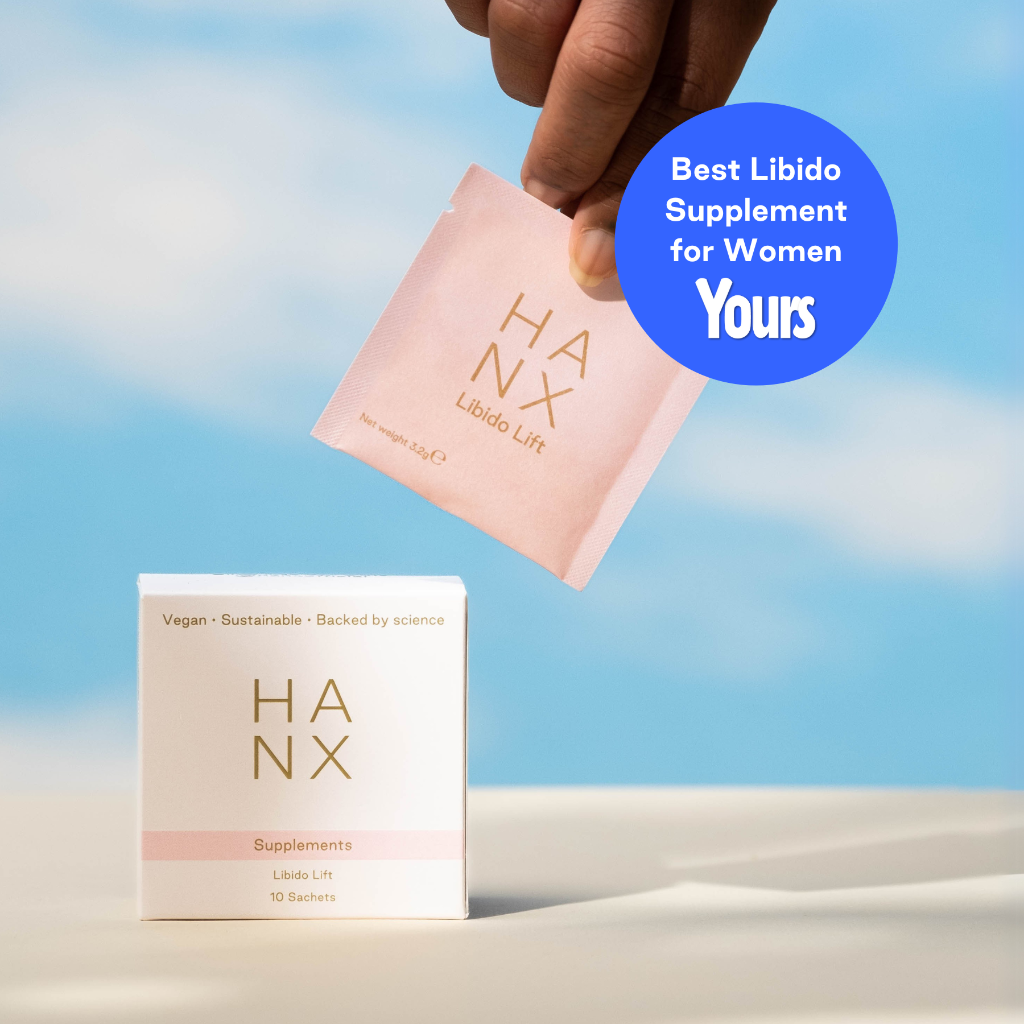Why Am I Always Too Tired For Sex?
Maybe you first noticed it when post-work. Rather than cheekily propositioning your partner for a romp, you headed straight for the sofa and The Big Bang Theory reruns. Perhaps your boyfriend, who was previously always ‘up for it’, has suddenly stopped initiating a customary bout of afternoon delight. The answer might just be tiredness - and trust us, you’re not alone if you’ve ever felt too tired for sex.
Fatigue can have a real impact on our sex lives. If you usually share a spicy desire for sex in your relationship (or when you're dating!), a change in circumstances can sometimes trigger a bit of anxiety. If this is where you’re at currently, take our advice: do not head to social media for assistance. There’s a lot of misinformation and stigma out there which can just make matters worse. For instance, a whole subreddit dedicated to ‘dead bedrooms’, or sexless relationships, debates the ins and outs of strangers’ love lives. Whilst there is some empathetic advice to be found in response to worried commenters, there’s also rampant shaming around loss of libido and this only further pressurises an already difficult situation.
So, how do you handle tiredness taking its toll in the bedroom? Over to our in-house sexperts…
Why does being tired affect our libido?
Libido isn't the mystical entity it's often believed to be. Speaking simply, it refers to our sexual appetite, or desire for sexual activity.
Sex is different for all of us. For some, it’s the ultimate relaxation activity. We can barely contain ourselves in anticipation of the orgasmic release of oxytocin, dopamine and endorphins - all of which reduce stress and help us feel blissed out. For others, sex can be a sweaty, energy-sapping activity which can feel like yet another chore on the task list. This can become especially heightened when we’re feeling burnout, exhausted or plain pooped.
Physically being tired can significantly impact our desire for sex due to a complex interplay of hormonal and physiological factors. Firstly, when our bodies are physically fatigued, levels of the hormone cortisol, which is associated with stress, tend to rise, while levels of testosterone, the hormone responsible for sexual desire, may decrease. Stress and exhaustion can impact our blood flow and circulation, negatively affecting our ability to get aroused e.g. produce natural vaginal lubricant, penile erections or hardening nipples. Basically: our bodies are clever. When we’re physically drained, they naturally prioritise rest and recovery over sex, as energy levels and stamina aren’t at operating at their best.
Our sex drives aren’t just affected by how much we’re physically moving around, either. Mental burnout and emotional exhaustion can have a significant impact on libido due to the intricate connection between the mind and body. Higher levels of cortisol when we're stressed can disrupt the delicate balance of neurotransmitters in the brain that regulate sexual desire, leading to a decrease in libido. Additionally, chronic fatigue and feelings of overwhelm can impede our body’s ability to produce sex hormones, such as testosterone and oestrogen, which makes it even more unlikely that we’ll be in the mood for sex.
Men Experience Low Libido, Too
Desire dips are natural, especially when we’re feeling physically and/or emotionally tired - and that goes for men just as much as women. Cultural myths around cisgendered men’s virility suggest that they’re always in the mood, with the persistence of Johnny Bravo and the throbbing horn of Elvis in his prime hip-swinging era. Any deviation from being 24/7 hump-monsters is sometimes upheld as proof that there is something wrong in the penile department - and this is often pure fiction. According to the NHS, 1 in 5 men experience low libido, but toxic beliefs about what’s ‘normal’ when it comes to sex can make it hard to speak openly about this. Trust us: the male sex drives ebbs and flows, too, and can be affected by myriad factors including drug and alcohol use, depression and a drop in sex hormones due to aging.
In fact, every single one of us has a different libido, which can be impacted positively or negatively by everything from medication to diet to mood - and our pure natural level of desire. Here are some life stages or elements which are known to get in the way of getting it on...
Parents, caregivers and libido
Parents, forgive us for stating the obvious, but new parenthood is highly likely to be a time when your appetite for sex is disrupted. In our postpartum pleasure workshop with women’s health advocate Clio Wood, she explored the realities of life with a newborn. She highlighted the fact that whether you’re breastfeeding or not, new mums are very much physically, if not also emotionally, exhausted. If you were pregnant, you've been through a major bodily change, and now you’re now tethered to a noisy new arrival which requires 24/7 attention. Combine a huge lack of sleep, demanding physical recovery and the phenomenon of being “touched out”, or overstimulated by physical contact, and by the time your partner arrives home post-work or tries to initiate intimacy in a snatched moment as baby finally sleeps, sex simply isn’t on the cards.
It’s not just an issue for new parents. As children grow, the duelling responsibilities of not just raising them to be emotionally, mentally and physically resilient individuals, but ensuring they’re on time and in the right place for various clubs and social dates - and later, navigating puberty, can make sex feel like yet another chore.
Similarly, caring responsibilities, including for elderly parents, can impact libido due to mental load. Many unpaid carers in the UK are also employed at some level, and balancing these responsibilities has a major impact. In fact, 74% state that their caring duties leave them feeling tired at work - something that absolutely extends into the bedroom, too. For some, sexual self image can further be challenged by playing the role of carer, which makes it difficult to switch ‘modes’ from practical and nurturing to xxx-rated lover. If this is you, we hear you, we've experienced this ourselves and are right there with you.
Menopause and libido
Tiredness can have a significant impact on libido during menopause. During this transitional time, our hormone levels fluctuate, which can lead to symptoms like fatigue, hot flushes, insomnia, and mood swings. A long, sleepless night, combined with brain fog at work, can make it difficult to feel physically and emotionally ready for intimacy, leading to a decrease in sexual desire. Additionally, chronic fatigue can decrease our energy levels and add to overall feelings of exhaustion, making it even harder to to feel in the mood for sex.
One menopausal symptom which isn’t spoken about openly also contributes hugely to painful sex and subsequent loss of desire: vaginal dryness. It's often a tricky topic to discuss, thanks to stereotypes around menopause signalling the end of our 'sexual era'. However, vaginal dryness can hugely impact enjoyment of penetrative sex or masturbation, and anxiety around soreness or even bleeding can really put a dampener on pleasure or put you off entirely. If you or your partner is experiencing this, our guide to sex in menopause might just help.
Work stress and libido
If the ping of a new email plopping into your inbox, or anxiety around catching up with that manager makes you dread work, there's a good chance that work is doing a number on your sex life, too. Yes, 34% of us report that our professional careers are dampening our ardour - and here's how. Stress causes our blood vessels to constrict, which impacts blood flow (alongside other things which are crucial to getting turned on!) between the brain and genitals. This can affect levels of natural vaginal lubrication (aka how wet you get) and the ability to get hard (and stay hard) if you/your partner has a penis, too. Work takes up a huge chunk of our lives and major pressure riding on it going well - bills that need to be paid, mortgages or rent that won't go away, our own hopes and dreams and aspirations. On average, UK workers spend 19% of every year working, it's no wonder that this stress bleeds out of the boardroom and into the bedroom.
How to get pleasure when you’re tired
-
Invoke the ten minute rule. No, this isn't a more grown up version of seven minutes in heaven. As sex educator Emm Cheeky suggested at our recent event all about libido in relationships, consider prepping for the possibility of sex as getting dressed up for a party that you're really not feeling. Often, we put on our glad rags, do head along on the promise of staying for just ten minutes and end up really enjoying ourselves. Free yourself from the pressure of definitely working towards full sex (whatever that means), put on the outfit that makes you feel most sexually empowered and your favourite pleasure-time playlist. Start with flirty chat, and gentle touch - or even a kiss.
-
A top tip from the parents in our own team and community: prioritise time for just the two of you. If it’s an option, lean on the services of a babysitting service such as CocoRico or Bubble, or a good friend - even for an hour. If not, try and challenge yourselves to spend 20 minutes talking about anything but your littles ones/parenthood/day-to-day life admin. The goal isn’t to leap straight back to hot and heavy petting, but to reestablish emotional intimacy. Though if you do find yourself reconnecting and tearing off your clothes, don’t let us stop you…
- Masturbation can help to boost desire, so don't be shy about giving yourself a hand. Mutual masturbation, or getting yourselves off at the same time, can be one way of putting pleasure back on the table without going in for partnered sex straight away.
- You might have heard of a little blue pill to help erectile dysfunction, but for many years, there was nothing on the market for women. Inspired by our community's feedback on their frustration around lack of options to boost their sex drive, we launched our pioneering natural support for women, Libido Lift. With science-backed ingredients including maca root powder, which studies show can significantly improve sexual function and libido, it's a powder-based supplement which can mixed into your morning smoothie or date night cocktail...
- For many of us, it's difficult to walk straight in the door and flip a magical horny switch that blanks all of the other things we have on our plates. Scheduling sex. Check out psychosexual therapist Dr Kate Moyle's book, The Science of Sex, which dives not just the benefits of planning pleasure but answers pretty much any question you've ever had about intimacy.
- Consider having a chat with your GP or healthcare professional if your libido takes an extended vacation, or you're feel in anyway concerned. It might be related to your broader health, or one of various conditions which can impede sex drive - and they're perfectly placed.
- Remember that you can be happy with your sex life whether you’re having it once a day, a week, a month or a blue moon. It's entirely down to your satisfaction.
Want more?
- Endometriosis, lesbian bed death and mismatched libidos: catch up on our very honest conversation about libido with four sexperts.
- Add our doctor-designed supplement to your daily routine to boost blood flow, mood and desire for intimacy. Try Libido Lift now.






















